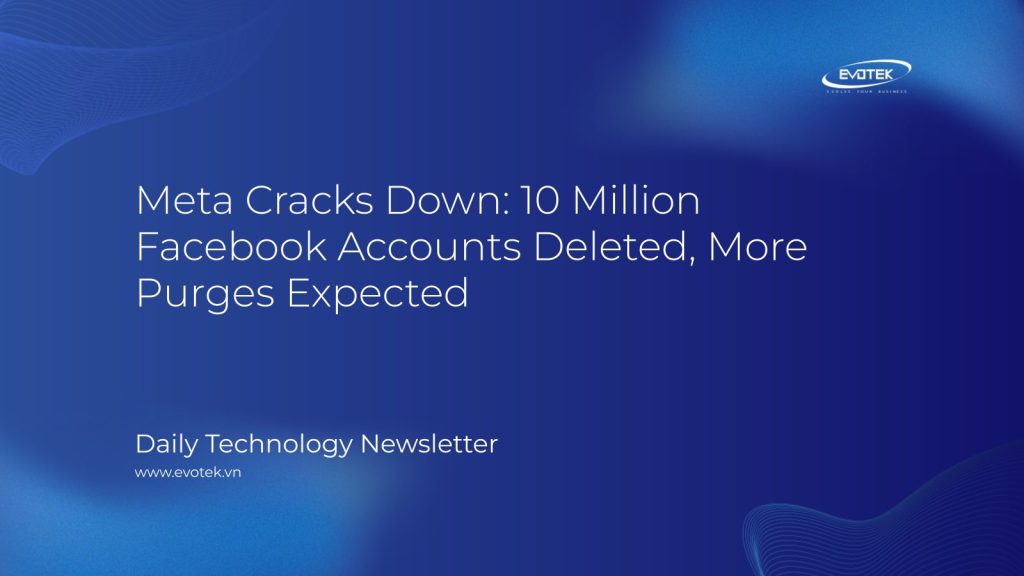Major online platforms are intensifying their efforts to maintain digital integrity, and Facebook is at the forefront of this movement. Recent reports confirm that Meta has removed a staggering 10 million Facebook accounts in just the first half of 2025, signaling an aggressive ongoing purge aimed at enhancing platform security and user experience.
This substantial account deletion follows similar cleanups observed across other prominent digital services, including Google Maps and Gmail. While Google’s previous purges primarily targeted inactive accounts, Facebook’s current initiative focuses on active profiles engaged in malicious or deceptive activities, prompting a significant shift in platform governance.
Why the Massive Facebook Account Purge?
Unlike previous concerns over inactive account deletions, this current Facebook purge is largely seen as a positive development for the vast majority of legitimate users. The core reason behind these widespread removals is to combat harmful practices that undermine content creators and compromise user trust.
An official announcement on the Facebook creators blog dated July 14, 2025, explicitly stated Meta’s commitment: “We believe that creators should be celebrated for their unique voices and perspectives, not drowned out by copycats and impersonators.” This statement highlights the central issue driving the purge.
Since the beginning of 2025, Meta has specifically targeted and removed approximately 10 million profiles found impersonating large content producers. This measure is a critical step in addressing brand impersonation, a common tactic often preceding more serious malicious activities, as recently evidenced by warnings issued to Amazon Prime customers regarding similar attacks.
Beyond Impersonation: Tackling Spam and Fake Engagement
The cleanup extends beyond just impersonation. Facebook has also identified and acted upon over 500,000 accounts engaged in widespread spammy behavior and fake engagement. The actions taken against these profiles include comments being demoted, reach being significantly reduced, and monetization capabilities being revoked.
This comprehensive approach underscores Meta’s dedication to fostering an authentic online environment. By systematically removing deceptive content and penalizing harmful practices, Facebook aims to ensure that original content thrives and creators receive due recognition for their hard work and creativity.
For everyday users, this aggressive cybersecurity stance means a more trustworthy and secure digital space. The ongoing commitment to eliminating spam, impersonation, and fake engagement promises a healthier social media ecosystem where genuine interactions and valuable content can flourish.

 日本語
日本語 한국어
한국어 Tiếng Việt
Tiếng Việt 简体中文
简体中文